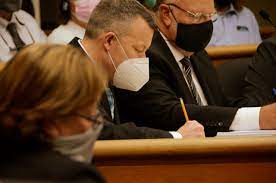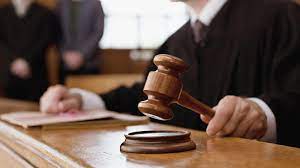Criminal law cases involve a formal criminal charge that ends with the person on trial either being incarcerated or set free. Although the legal procedures involved in criminal cases differ dramatically by jurisdiction, the results are either the acquittal or conviction of the defendant. This can either be in the form of adversarial or inquisitorial criminal procedure. Nonetheless, all criminal law cases go through five major steps.
1. Arrest
The accused is arrested by a law enforcement officer who may witness the crime happening or has a warrant for arrest. The warrant of arrest is applicable when probable cause exists that the accused person committed a crime. After the arrest, the person must be brought before a judge in a court of law for an initial appearance within 24 hours or else be released.
2. Initial Appearance
During the initial appearance, the judge will determine the name and address of the defendant. The judge will also inform the defendant of the charges brought against them, their right to remain silent and to have an attorney. If the defendant cannot afford an attorney, the judge will appoint one for the, and set the conditions for release from jail.
3. Preliminary Hearing
The judge listens to the evidence and testimony during the preliminary hearing. The prosecuting and the defendant’s attorneys bring in the witnesses at this stage. If the judge determines that the available evidence is enough to believe that the defendant committed the crime, an arraignment date is set and the defendant is held for trial in superior court.

4. Arraignment
The defendant either pleads guilty or is not guilty at the arraignment. They may also enter a plea of nolo contendere (no content). The judge makes the decision depending on the plea that the defendant enters. If they plead not guilty, the judge sets a trial date for the case. However, a please of guilty or a declaration of no contest to the charges is followed by a set date for sentencing the defendant.
5. The Trial
The opening statement to a trial gives the defendant the right to a trial, which either the judge or a jury determines if they are guilty. Once the court is ready, the trial begins. Each side, prosecution, and defendant, are allowed to make their opening statements. The prosecuting attorney speaks first, followed by the defendant.

The criminal law case ends with the closing arguments, jury deliberations, the verdict, and sentencing. If the defendant is not satisfied with the outcomes of the case, they may appeal the ruling.
